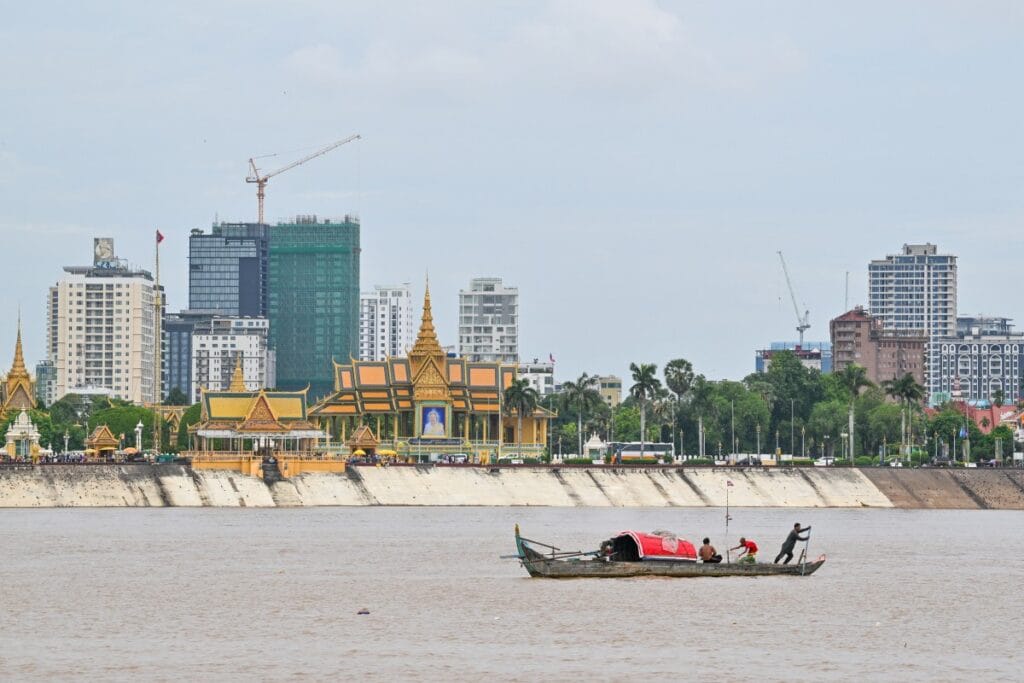October 15, 2025
SEOUL – Growing concern over a string of reported abductions targeting South Koreans in Cambodia has prompted lawmakers across party lines to urge that the government take stronger measures, specifically a military rescue operation, to withdraw those held in captivity.
However, experts and government officials lean toward using diplomatic channels or investigative cooperation between the two countries instead of force to resolve the issues.
Rep. Song Eon-seog, the main opposition People Power Party’s floor leader, on Tuesday called for President Lee Jae Myung to intervene directly in the matter, citing a 2011 military hostage rescue mission, during an intraparty meeting.
“In the past, our government carried out a full-scale military operation — the ‘Dawn of the Gulf of Aden’ mission — to rescue Korean citizens taken hostage,” Song said.
Launched in January 2011, Operation Dawn of Gulf of Aden was a naval hostage rescue mission conducted by South Korean Navy commandos after Somali pirates hijacked the Samho Jewelry, a South Korean-operated chemical tanker, in the Arabian Sea. A special forces unit stormed the vessel in a predawn raid, killing several pirates and freeing all 21 crew members. The successful operation became a symbol of South Korea’s resolve to protect Koreans abroad through decisive action when diplomatic efforts fail.
Song also urged President Lee Jae Myung to mobilize all diplomatic channels, including the formation of an interagency emergency task force, the dispatch of a special envoy and a direct call between heads of state to prompt concrete action from Cambodia.
Song’s remarks closely follow proposals by ruling Democratic Party of Korea Rep. Lee Eon-ju, who is a member of the party’s supreme council. Rep. Lee believes the government should not rule out military measures if the Cambodian government fails to act decisively.
“We must show the world that anyone who commits crimes or terrorism against Koreans will be punished to the end. If Cambodia responds passively, we should consider self-help measures, including military action, to protect our citizens,” she wrote in a Facebook post uploaded Sunday.
She described the transnational criminal networks operating in Cambodia as “virtually international mafia or terrorist groups,” and called for “a joint crackdown operation with international organizations and the governments of Southeast Asian countries, as well as China and Japan.”
The topic was at the center of a fierce debate during a parliamentary audit on Monday, with Rep. Park Beom-kye of the Democratic Party claiming “the situation now requires a completely different level of awareness” and urging a “pangovernmental” response. He said Cambodia had been a major beneficiary of South Korea’s official development assistance and suggested that Seoul should consider “diplomatic, policing or even military options” if necessary.
Rep. Kang Min-kuk of the People Power Party, during the same audit, also alluded to the 2011 Operation Dawn of Gulf of Aden, arguing that Seoul should consider “joint military operations with Cambodian security forces,” or even “review withdrawal” of official development assistance funds if Phnom Penh refuses cooperation.
Despite growing calls for Seoul to review the option of a military operation, the presidential office and government officials are placing more emphasis on investigative cooperation.
During Monday’s audit, Yoon Chang-yul, minister of the Office for Government Policy Coordination, expressed hopes that the situation would be resolved without a potential military operation. “It would be best if we can resolve this without going that far, but the government will consider all possible measures,” he replied when asked about a potential military operation.
Wi Sung-lac, director of the National Security Office, on Monday chaired an emergency task force meeting on crimes involving South Koreans in Cambodia, joined by officials from the foreign and justice ministries as well as national police agencies.
Presidential spokesperson Kang Yu-jung said Wi underscored the need to “swiftly repatriate citizens in danger on humanitarian grounds,” while ensuring that any Korean nationals involved in illegal activities are investigated.
She added that officials discussed dispatching Korean investigators to Cambodia to coordinate rescue efforts and strengthen joint investigations with Cambodian authorities.
Lee Shin-wha, a professor of political science and international relations at Korea University, told The Korea Herald that a military operation “is virtually impossible and would likely do more harm than good,” adding that it could also “risk a diplomatic misstep.” She underscored the importance of “realistic measures,” such as legislation to prevent ambassadorial vacancies and the establishment of a permanent control tower to safeguard Koreans overseas.
Lee further noted that deploying South Korean investigators to Cambodia would require “a solid framework of bilateral cooperation.” She advised that Seoul “should propose specific support measures to Phnom Penh while seeking its consent for the dispatch of investigative personnel.”
The discussions come amid mounting reports that an increasing number of South Koreans have been abducted or held captive in Cambodia after being lured by fake job offers. Public anger intensified in August when a South Korean university student, who had gone missing after arriving for work, was found dead near Bokor Mountain in Kampot province, showing signs of torture and confinement.
According to Seoul, of the 330 such cases of suspected abduction, confinement or disappearance in Cambodia reported to the Foreign Ministry between January and August this year, 70 remain unresolved, while 10 cases from the 220 reported last year are still pending — leaving a total of 80 unresolved cases to date.







